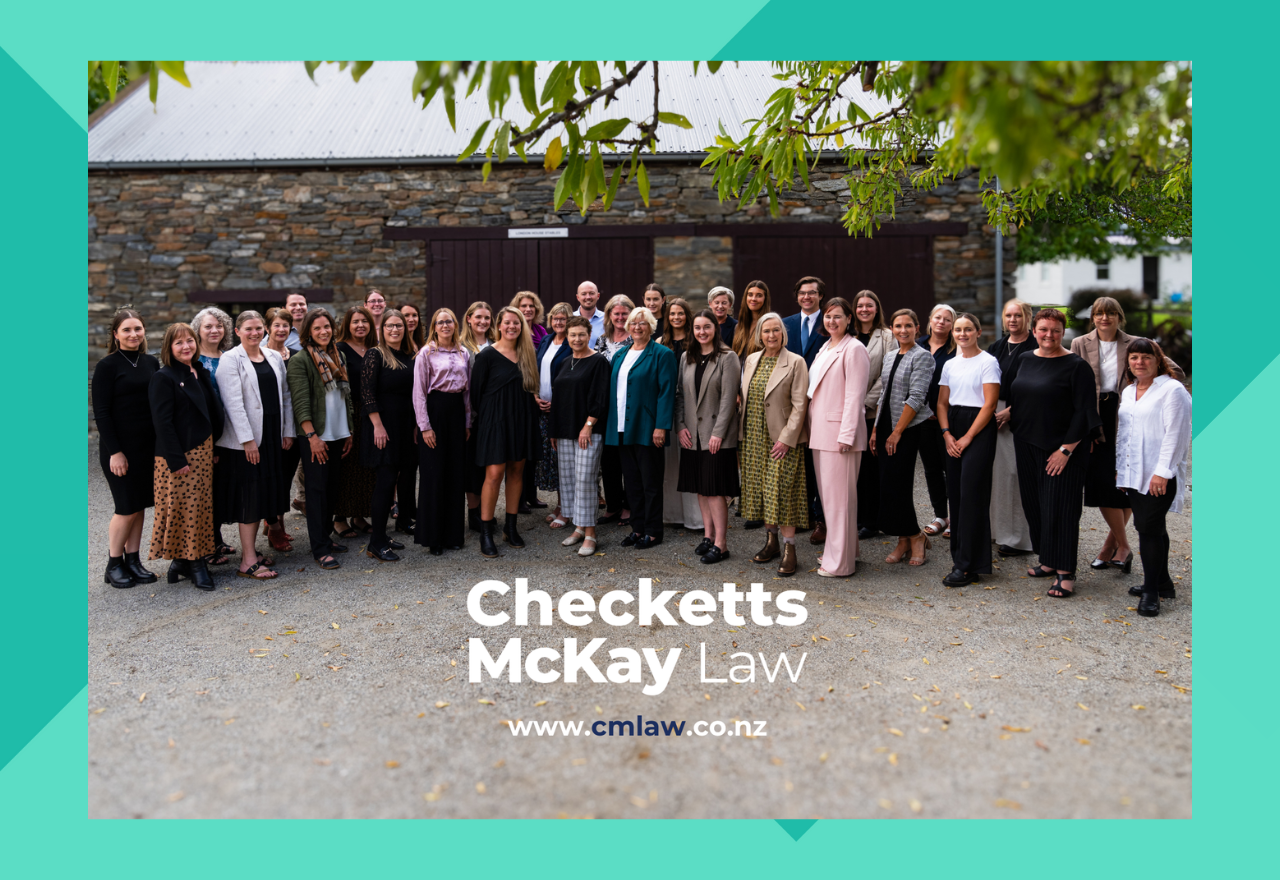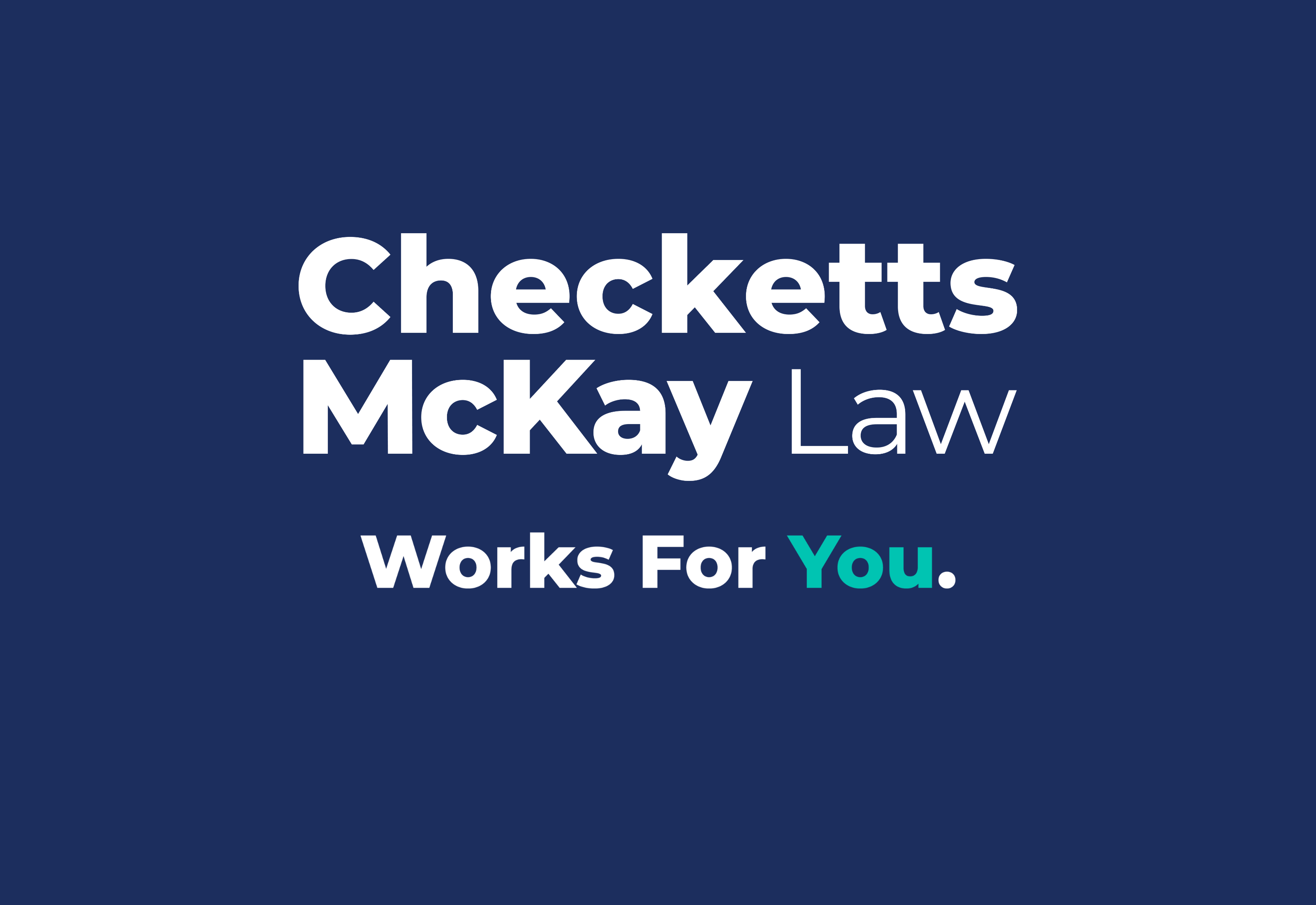What to Do When You Separate: A Step-by-Step Guide (Law blog)
Bridget Liggins - Checketts McKay Law
25 July 2025, 8:00 PM

Separation can be one of the most challenging periods in life, emotionally, practically, and legally. Whether you are married, in a civil union, or in a de facto relationship, there are important steps to take to protect your rights, your wellbeing, and your family’s future.
This guide outlines the key steps involved in separation, including how to sort out property, care of children, and when to involve professionals like lawyers or the Family Court.
Understanding Separation
Separation occurs when you and your partner decide to end your relationship and start living apart. You do not need to apply to the court or sign any formal paperwork to legally separate. However, there are legal and practical steps that follow, especially concerning property, parenting, and finances.
Immediate Practical Steps
- Decide on Living Arrangements: Agree who will stay in the family home (if possible) and how to manage living separately.
- Sort Out Finances: Discuss how to manage bills, debts, and bank accounts. Notify your bank of the separation to protect shared funds.
- Think About Children: Begin discussing care arrangements, contact, and schooling for your children.
Sorting Out Relationship Property
Under the Property (Relationships) Act 1976, relationship property (generally everything acquired during the relationship) is to be divided equally unless exceptional circumstances apply.
To formalise any property division, you must enter into a Separation Agreement and you need to do this with a lawyer.
Why You Need a Lawyer
A property agreement under section 21A of the Property (Relationships) Act is only valid if:
- It is in writing,
- Each party has independent legal advice, and
- The agreement is signed by both parties and certified by their respective lawyers.
This ensures that both parties understand their rights and that the agreement is fair and enforceable.
Parenting and the Family Court
If you and your partner cannot agree on arrangements for the care of children, you may need to apply to the Family Court.
Consider Mediation or Family Dispute Resolution
Couples may benefit from mediation or Family Dispute Resolution (FDR). These are services designed to help you, and your partner agree on parenting and sometimes property issues in a neutral and supported environment.
- Family Dispute Resolution (FDR) is required before most parenting matters can be taken to court (unless exemptions apply, such as family violence).
- Mediation is usually faster, cheaper, and less stressful than litigation
The process involves:
- Attending FDR (unless exempt),
- Filing an application for a Parenting Order or Consent Order (if agreement is reached but needs court confirmation),
- Possibly undergoing a parenting course,
- Attending a court hearing if agreement still cannot be reached.
The court's focus is always the best interests of the child, not the rights of the parents.
Spousal Maintenance
If one partner is unable to financially support themselves post-separation, they may be entitled to spousal maintenance. This can be negotiated or applied for through the Family Court if necessary.
Divorce (Dissolution of Marriage or Civil Union)
To legally divorce, you must have been separated for at least two years and one party must apply to the Family Court for a Dissolution Order.
- You can apply on your own or jointly.
- There is a court filing fee.
- You do not need to divide property first to apply for divorce—but ideally, you should have sorted it before or soon after.
When to Engage a Lawyer
- It is strongly recommended to see a family lawyer when:
- You are dividing property.
- You’re considering a formal Separation Agreement.
- There is a power imbalance or family violence.
- You need advice about children or court processes.
Many lawyers offer initial free consultations, and Legal Aid may be available depending on your income and the nature of your dispute. Here at Checketts McKay Law, we have three Lead Family Legal Aid providers, who are ready and able to assist.
Other Considerations
- Update your Will and Enduring Powers of Attorney.
- Notify Work and Income or Inland Revenue (IRD) if your relationship status changes.
- Consider counselling for you or your children.
Conclusion
Separation is a personal and complex journey, but you don’t need to go through it alone. By understanding the steps involved, accessing the right support services, and getting sound legal advice when needed, you can navigate this transition with more clarity and confidence.
If in doubt, start by contacting:
- A family lawyer, we have several experiences Family Lawyers at Checketts McKay Law who are here to help,
- A Community Law Centre,
- The Family Court,
- Or a mediation service.
The earlier you seek advice, the more empowered you’ll be to make informed decisions for yourself and your family.
17 Dunmore Street, Wānaka


